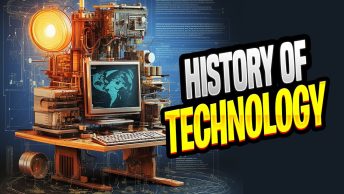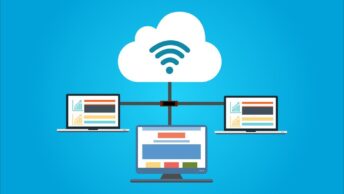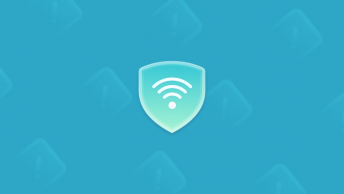Information Technology is all about software, networking, computer, and system. Everything that is related to computer technology comes under the category of information technology. The subject range for IT is very wide. It covers the following topics and subjects;
- Internet
- Hardware
- Software
- Engineering
- Computer sciences
- Mathematics
- Statics and Dynamics
- Humanities and Management
- Web development
- Health
- Security
- Communication
- Computer programming
- Digital marketing
- Business
In all these subjects, IT assists with the creation, and processing of electronic data. You can also save it through security, and amend it as per your needs. IT has become an important part of our daily lives. As technology is getting advanced day by day, the use, and significance of IT is increasing as well. Many organisations are working to introduce separate IT departments because this has become a need of the hour.
Business
In the field of business, IT plays a major role. It does not matter if you’re running a small, or a large business, because the use of Information Technology is common. It has even become necessary in some situations. In business, you have to deal with your competitors. And you can only beat them by following advanced technology. For example, there was lockdown in different phases of the pandemic. People were not allowed to go in the form of groups for grocery, or other types of shopping. In that phase, it was observed that the trend of online shopping was getting hyped. Now suppose you have not ensured an online feature for your products/services. Then obviously you would not be able to survive in the market. Hence you cannot ignore the role of IT at all in these modern times.
Education
No matter what your area of study is, you need to follow technology. In engineering, medical, business and all other fields, you need a laptop, smartphone, and internet access. These are the basic needs to explore more in your field. You might also need to learn about different software, and tools related to your field. So you can see that even in educational sectors, the use of IT has become a necessity.
Health Care Sector
In the medical sector, it has become very easy to share related information, and records. Through the advent of IT, patients can also book their appointment beforehand. And medical students are also able to conduct research on various aspects. They may have to use the data of hospitals for this. Information Technology assists in the management, and storage regarding bundles of data as well.
Medical students have to collect, and analyse data on many different topics. And based on the analysis, they need to ensure interpretation as well. This analysis requires different tests, and calculation methods too. Examples for this include paired, and unpaired tests. In calculation aspects, statistical methods can also be involved. These may include, but are not limited to the following;
- The biomedical computer package (BMD)
- Statistical package for the social sciences (SPSS)
- Genstat
- Epi-Info
Hospitals require operations based monitoring, and scheduling. The time of manual working has gone. Within this context, the use of computers has made the management of daily tasks easy. If a clinic has an online application, patients can pay bills, and track their appointment as well through online means that IT provides.
Laboratories
The basic purpose of laboratories is to give precise results in a short duration of time. This includes clinical laboratories, as well as other testing labs. For example, medical laboratories are in use for the following purposes;
- Blood testing
- Photometry
- Microbiology
Whereas in the case of engineering and other fields, labs are used for sample testing. Then that result is analysed with the help of Information Technology.
Examples of Information Technology (IT)
Following are the best examples of Information Technology (IT) in our daily lives, as well as in the different industries;
- Radio broadcast.
- TV and LEDs.
- Switches for voice communication.
- Applications for data handling.
- Scanning system in marts, and offices.
- Tracking system.
- Software, and online tools.
- Laptop, computer, and smartphones.
Career in Information Technology (IT)
The world is growing very fast. And everything is becoming competitive day by day. If you’re planning to pursue Information Technology as a career, it is not a bad idea at all. This is because it is the best choice for a career. Yet for having a career in IT, you’re not supposed to have technical skills only. Because you need to have a look at many more aspects. Let’s discuss how you can become an IT professional through the following factors;
Specialisation in One Field
To start a career in IT, you need to identify your future goal first. For example, you need to decide if you want to be a programmer, or a project manager. Same goes for deciding if you want to go into the field of analytics, or any other domain. All of these aspects are very important to focus on. Suppose you have finalised what domain you want to work in within the IT field. Now you’ll have to focus on different aspects associated with this context. It means to highlight what you exactly want to be. To put your mind at ease, you can search for all the fields related to IT. Then you can see which field you have more interest in, and which one has a brighter scope in the future. Some IT-related jobs are as follows;
- Programming
- Technical Support
- Cyber Security
- Web Development
- Project Management
- Mobile Application
- Device Management
- Networking
- Big Data Management
- Database Administration
- Business Intelligence
- Business Analytics
You can decide any one field from all of these. But for this, you have to complete academics in IT first. Like Bachelor’s, and Master’s in IT. Academic credentials matter a lot for each niche. And having a degree in IT enhances the chances for your success in the long term. Otherwise, it will remain challenging for you throughout your career.
Communication and Research Skills
For having a career in Information Technology (IT), you need to work on your soft skills. These include effective listening, patience, and conflict resolution strategies. As an IT professional, these traits should be a part of your personality. In the same way, you have to develop effective research skills. In the IT industry, nothing can be done well without accurate research. And by ensuring good research skills, you can increase your success chances in this field. For each niche of IT, these traits are highly important. However, the area of research has changed. You can understand this aspect with the help of an example that’s given below;
Suppose you selected the area of cyber security. Here you’re supposed to research defence, as well as other protecting techniques and their applications. Also, you would be asked to plan regarding new, and advanced strategies for controlling threats. Similarly, research area depends on the selected field.







